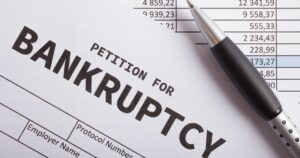If you intend to file bankruptcy, there is plenty more that you have to do other than hiring an attorney and filling out some forms. There is also plenty NOT to do. What you do (and more specifically, what you don’t do) prior to officially filing is critical. Doing the wrong thing could result in your case being dismissed and multiple judgments and liens for your outstanding debts.
What Should You Not Do Before Filing for Bankruptcy?
These actions will have a severe, irreversible impact on your bankruptcy case (regardless of whether you are filing Chapter 7 or Chapter 13 bankruptcy). So, when considering bankruptcy, here are seven things NOT to do:
-
Provide Inaccurate or Dishonest Information
We all make mistakes. But bankruptcy courts do not take dishonesty lightly. The courts demand 100 percent accuracy in regard to assets, debts, income, expenses, and financial history. Any inaccuracies or information that is perceived as dishonest could result in serious consequences.
- Fail to File Your Tax Returns — You are required to file all tax returns for the past two years before filing bankruptcy. Failing to do so could halt your case. Those tax returns provide past earnings and asset information. They also help the court determine tax obligations.
- Add More Debt – Now is not the time to charge up credit cards and take out more loans. Adding more debt (especially within 90 days of filing), could result in a creditor objecting to the discharge of your debts–and the bankruptcy court’s approval of such requests.
- Relocate Assets – If you think relocating your assets will protect them from liquidation, you are putting yourself in dangerous territory. Selling assets to pay off debts is one thing. Moving assets to keep them from creditors is quite another. It could lead to serious trouble.
- File Pro Se – The internet is full of DIY resources. Bankruptcy is not a DIY project. Filing for bankruptcy without a lawyer can lead to disaster. An attorney understands the critical deadlines, paperwork required, and hearings that you must attend.
- Give Money to Relatives –Even if you want to help, giving a relative a significant amount of money right before filing bankruptcy could raise questions. The Bankruptcy Trustee could contact the relative and require him or her to pay the court in order to pay off your creditors.
- Pay Creditors –You may want to do the right thing by paying down debts. But, the court might consider such payments to be preferential transfers. They could lead to lawsuits where the court’s representative sues the entity or person that you paid in order to get the money back for proper distribution. You should, however, pay all other bills on time to avoid further collections.
What to do: Speak with a Bankruptcy Attorney Before Doing Anything
Every little thing that you do leading up to your filing, as well as after, can affect your case. Consult a bankruptcy lawyer before you file.

